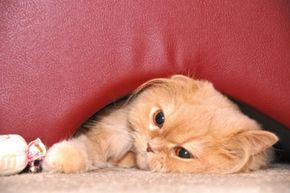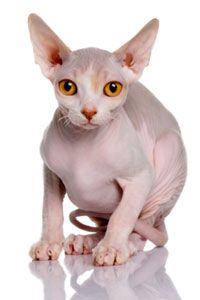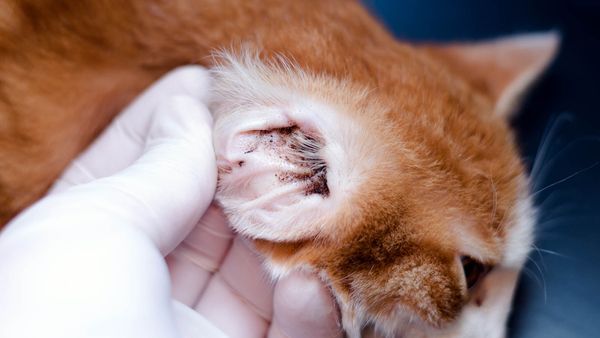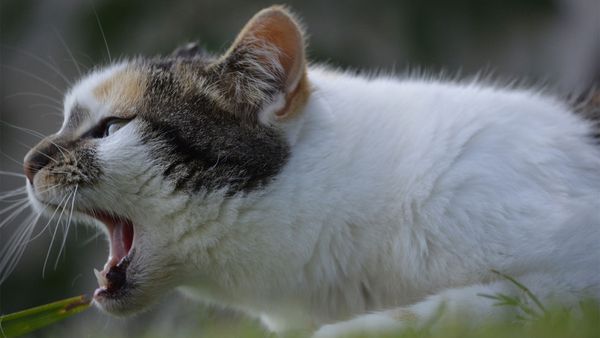Cats are known for being clean animals, and part of this is due to their fastidious grooming. Every time your cat licks himself, however, loose hairs get swallowed. Hairs aren't digestible, but they usually just get passed through your cat's stomach and intestines.
Sometimes -- in long-haired cats during periods of heavy shedding, or in cats that groom other cats or themselves excessively -- the cat swallows enough hair to form a wad in his stomach. These wads of hair are ejected in a long, moist tube known as a trichobezoar, or "hairball." Kittens don't usually get hairballs, but they're common in older cats as they learn how to groom themselves better.
Advertisement
A hairball on occasion is normal, but hairballs several times a week or even daily are a problem. It's also an issue if your cat is having a hard time bringing up a hairball. Hairballs usually come up in one or two tries so if your cat continues retching, you should take him to the veterinarian. Hairballs that won't pass can also cause lethargy, diarrhea, defecation problems, a bloated abdomen or a loss of appetite in a cat. Occasionally, hairballs can get so bad that they block his throat, stomach or intestines, resulting in death. If there's enough hair to cause a blockage, your cat may need surgery. Hairballs the size of baseballs have been removed from cats' stomachs.
Like so many other maladies in cats, prevention is the best cure. Read on to find out what you can do to keep your cat from getting hairballs.
Advertisement



